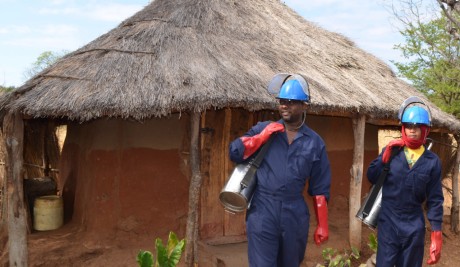Malaria burden remains high in border towns in Zimbabwe, especially in areas close to Mozambique, health experts have said. While the overall national statistics indicate a major decline from 5 000 deaths to 300 per year, border districts like Mudzi are still recording high cases.
Speaking during the launch of the Zimbabwean leg of the race against malaria (RAM) 2 campaign at Nyamapanda clinic last week, deputy minister of Health and Child Care, Paul Chimedza said the initiative was paying special attention to the worst affected areas.
“The communities that live in these areas are closely interlinked,” he said. Chimedza said the disease burden was weighing heavily on the battered health delivery service. He said there was need for more funding from partners.
Currently the Global Fund and a few other partners are contributing to malaria control programmes. The provincial medical director for Mashonaland East, Simukai Zizhou said 28 000 cases of malaria had been recorded in 2013 in Mudzi, accounting for over 20% of the population.
“At the moment areas like Uzumba Maramba Pfungwe, Mutoko and Mudzi top the list,” he said. Cross border movement was posing a challenge to programme interventions and RAM was initiated in Sadc to maximise efforts to control malaria.
Initiated in 2003, RAM includes countries like Angola, Zambia, Mozambique, South Africa, Swaziland and Zimbabwe. RAM is a Sadc initiative to create awareness and mobilise resources for action against malaria and to strengthen malaria control infrastructure within the region.
The first RAM campaign was held in November 2003.Convoys of country malaria teams drove from Angola to Dar-es-Salaam (Tanzania) through Zambia, Zimbabwe, South Africa, Swaziland, Mozambique and Malawi.
During the campaign, regional and local partners including the corporate world were instrumental in mobilising malaria commodities which were distributed to support activities for malaria prevention and control in the region.
RAM 2 campaign, which is a reverse of RAM 1, started from Dar-es-Salaam, Tanzania on April 13 2014 and will end on April 25 2014 in Angola. Countries taking part in RAM 2 include Zambia, Democratic Republic of Congo, Malawi, Mozambique, Zimbabwe, South Africa, Swaziland, Namibia, Tanzania and Angola.
The participants of RAM 2 include individuals, institutions or organisations that share the need for a malaria-free Africa and seek to achieve parasite-free communities. These include Government departments, UN agencies, non-governmental organisations, the Corporate world, private sector, health professionals, and uniformed forces.
Source: All Africa



